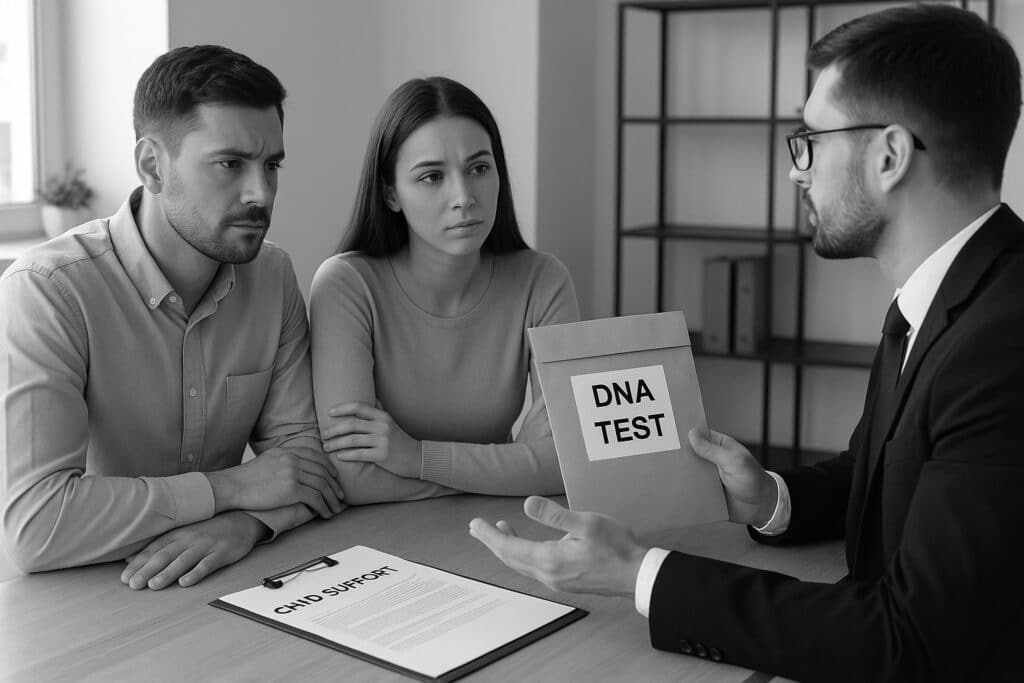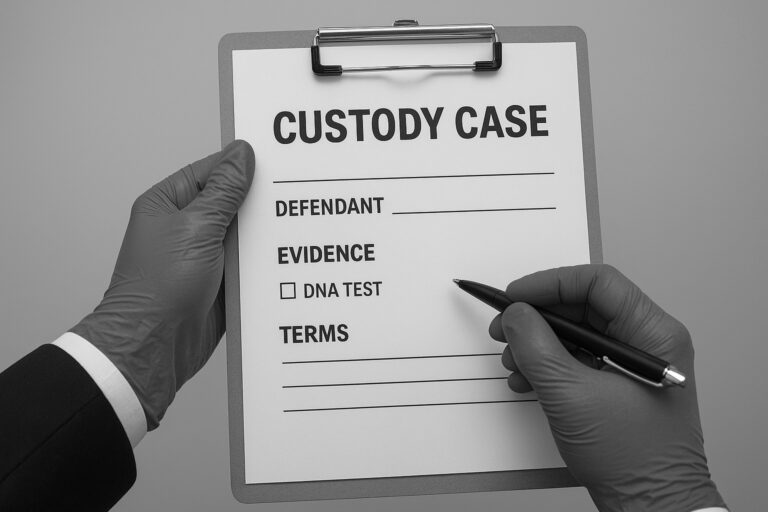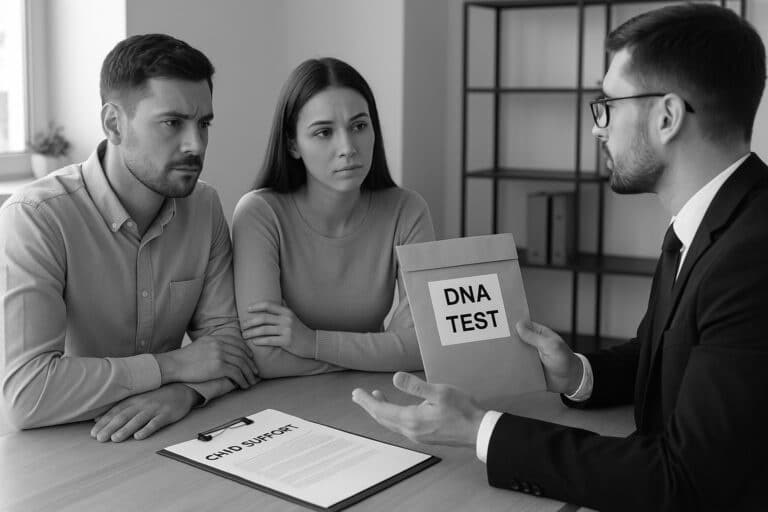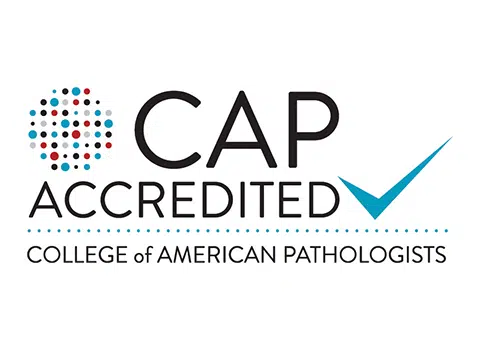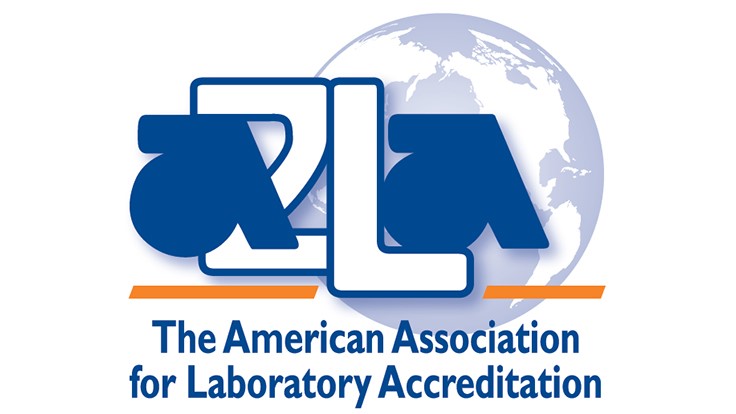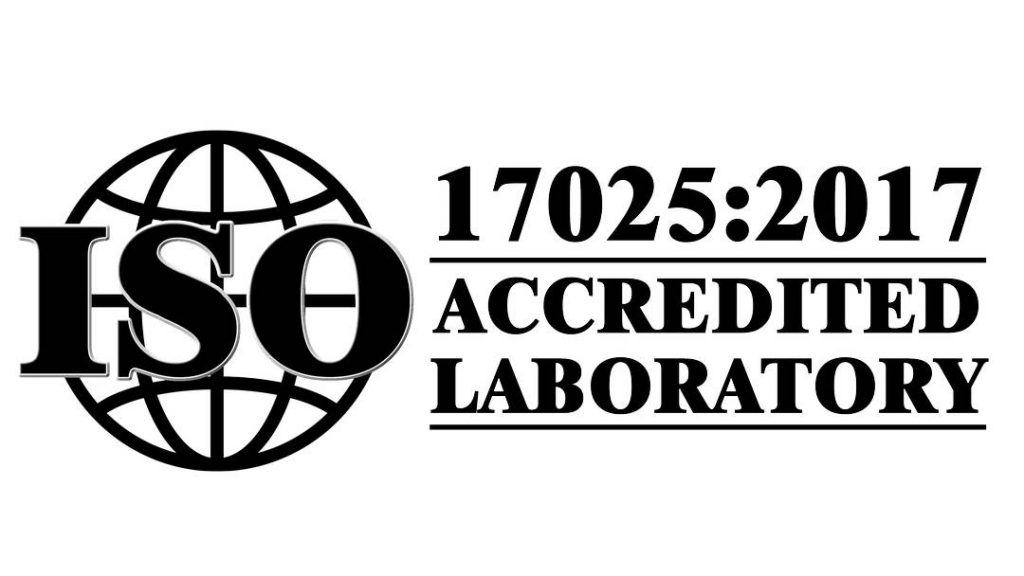When it comes to child support, figuring out who the father is can sometimes get complicated. You might be wondering how to get a clear answer, especially if it needs to be official. This is where Legal DNA Testing for Child Support Cases comes into play. It’s a way to get accurate information that courts can use. Let’s break down what you need to know about the process.
Table of Contents
ToggleKey Takeaways
Legal DNA testing is vital for establishing paternity in child support cases, providing definitive answers where disputes or doubts exist.
Courts can order DNA tests, and these must be conducted by accredited laboratories to ensure the results are legally admissible.
Maintaining a strict chain of custody for samples is essential for the test results to be accepted in court.
The results of a legal DNA test directly influence child support decisions, confirming or excluding paternity and determining financial obligations.
Understanding who pays for court-ordered tests and the difference between legal and at-home testing is important for managing costs and ensuring compliance.
Understanding Legal DNA Testing for Child Support Cases
Why DNA Testing is Crucial for Child Support
When it comes to child support, establishing paternity is the first step. Without a clear biological father identified, it’s impossible to legally obligate someone to provide financial support. DNA testing offers a scientific way to settle these questions with a very high degree of certainty. This accuracy helps avoid lengthy legal battles and emotional distress for everyone involved, especially the child. It provides concrete evidence that courts can rely on to make fair decisions about support obligations.
The Role of DNA Testing in Establishing Paternity
DNA testing works by comparing the genetic markers of a child with those of a potential father. Since children inherit half of their DNA from their mother and half from their father, specific genetic patterns can confirm or exclude a man as the biological father. This scientific approach removes guesswork and disputes, making it a standard procedure in many child support cases. It’s a reliable method for confirming parentage, which is the basis for all child support orders.
Accuracy and Reliability of Legal DNA Tests
Legal DNA tests are designed to be highly accurate, often exceeding 99.9% in confirming or excluding paternity. This reliability comes from using advanced laboratory techniques and testing a sufficient number of genetic markers. For a test to be legally admissible, it must be conducted by an accredited laboratory that follows strict protocols, including maintaining a chain of custody for the samples. This ensures the integrity of the evidence presented in court. You can find accredited labs through organizations like the American Association of Blood Banks (AABB).
| Test Type | Accuracy Rate | Legal Admissibility |
|---|---|---|
| Legal DNA Test | >99.9% | Yes |
| At-Home DNA Test | >99.9% | No |
When you need to establish paternity for legal reasons, like child support, choosing a lab that follows strict procedures is important. This ensures the results will be accepted by the court. The process involves specific steps to guarantee the sample’s integrity from collection to analysis. This is different from at-home kits, which are great for personal knowledge but don’t meet legal standards. Legal DNA tests are the way to go for official matters.
Initiating a Legal DNA Test for Child Support
Who Can Request a DNA Test for Child Support?
Generally, if there’s a question about who the father is, several people can start the process to get a DNA test for child support. This often includes the mother of the child, who might want to establish paternity to secure financial support. The alleged father can also request a test, perhaps to confirm his biological relationship or to dispute a claim. In cases where a parent is receiving public assistance, the state’s child support agency might initiate a test to establish paternity and recover funds. Even a court itself can order a test if paternity is a point of contention in divorce or custody proceedings.
How to Legally Request a DNA Test
Starting a legal DNA test for child support usually involves the court system. You’ll typically need to file a petition or a motion with the appropriate court. This document will outline why you believe a paternity test is necessary. You might need to fill out specific forms provided by the court and pay a filing fee. After you file, the court will review your request. If the judge agrees that a test is needed, they will issue a court order. This order specifies that a DNA test must be conducted, often naming an accredited laboratory to perform the collection and analysis.
Navigating the Court Petition Process
When you need a court-ordered DNA test, you’ll likely go through a petition process. This starts with filing a formal request with the court, often called a petition or motion for genetic testing. You’ll need to provide details about the case and why the test is important. Be prepared for potential filing fees, though some courts may waive these if you have a low income. After filing, a court hearing might be scheduled. Here, a judge will listen to the arguments and decide whether to grant the order for testing. If the order is granted, it will direct the parties involved to appear at an accredited facility for sample collection. Following the court’s instructions precisely is key to ensuring the results are legally valid.
| Scenario | Who Can Initiate |
|---|---|
| Mother seeking support | Mother, State Agency |
| Alleged father disputes claim | Alleged Father |
| Public assistance involved | State Agency |
| Custody dispute | Court, Either Parent |
It’s important to remember that at-home DNA tests, while providing accurate results for personal knowledge, are not admissible in court for legal matters like child support. A legal DNA test requires a strict chain of custody and collection by authorized personnel.
The Court-Ordered DNA Testing Process

When Courts Mandate DNA Testing
Sometimes, a court will step in and order a DNA test. This usually happens when paternity is questioned in a child support case, and the parties involved can’t agree on it themselves. A judge might issue this order to get clear, factual information to make a decision. It’s a way for the legal system to remove doubt and ensure fairness.
Understanding Court Orders for Genetic Testing
A court order for genetic testing is a formal directive from a judge. It specifies who needs to be tested, often the child and the alleged father, and sometimes other relatives if the alleged father isn’t available. The order will also typically name the laboratory that must conduct the test. It’s really important to follow this order precisely. If you don’t, there can be legal consequences.
The Importance of Accredited Laboratories
When a DNA test is ordered by a court, it has to be done by a lab that meets certain standards. These are called accredited laboratories. Accreditation means the lab has been checked and meets strict quality and accuracy requirements. This ensures the results are reliable and can be used as evidence in court. You can’t just go to any place for a court-ordered test; it has to be an accredited facility to be legally valid.
Sample Collection and Chain of Custody
Legal vs. At-Home DNA Testing
When you need DNA test results for official purposes, like child support cases, you can’t just use any sample. Legal DNA tests require a strict process to make sure the results are valid in court. This is different from at-home DNA tests, which are fine for personal curiosity but won’t hold up legally. The main difference lies in how the samples are collected and handled. For legal cases, the sample collection must follow a specific procedure to maintain what’s called a chain of custody. This ensures that the sample taken from the person tested is indeed that person’s sample and hasn’t been tampered with. At-home kits, while convenient, don’t have these safeguards because they aren’t intended for legal use.
Proper Sample Collection for Legal Admissibility
To make sure your DNA test results are accepted by the court, the sample collection process is key. The most common method involves using a sterile cotton swab, often called a buccal swab. This swab is gently rubbed on the inside of your cheek to collect cells. Sometimes, a blood sample might be taken instead. This collection must be performed by trained personnel. They will document who provided the sample and when. This careful documentation is what makes the sample legally admissible. They will document who provided the sample and when.
Maintaining the Chain of Custody
The chain of custody is a detailed record that tracks the handling of your DNA sample from the moment it’s collected until it reaches the lab for testing. Think of it as a documented trail. It includes:
- Who collected the sample.
- When and where the sample was collected.
- Who handled the sample at each step.
- When the sample was transferred.
- Where the sample was stored.
Every person who comes into contact with the sample must sign off, creating an unbroken link. If this chain is broken at any point, the sample’s integrity can be questioned, and the results might not be accepted in court. This is why using accredited labs and following their procedures precisely is so important for legal DNA testing.
For legal DNA tests, the collection site must be an approved facility. This ensures that the process is standardized and documented correctly. The person collecting the sample will verify the identity of everyone providing a sample, often requiring photo identification. This step is critical for the legal validity of the test results.
Interpreting DNA Test Results for Child Support
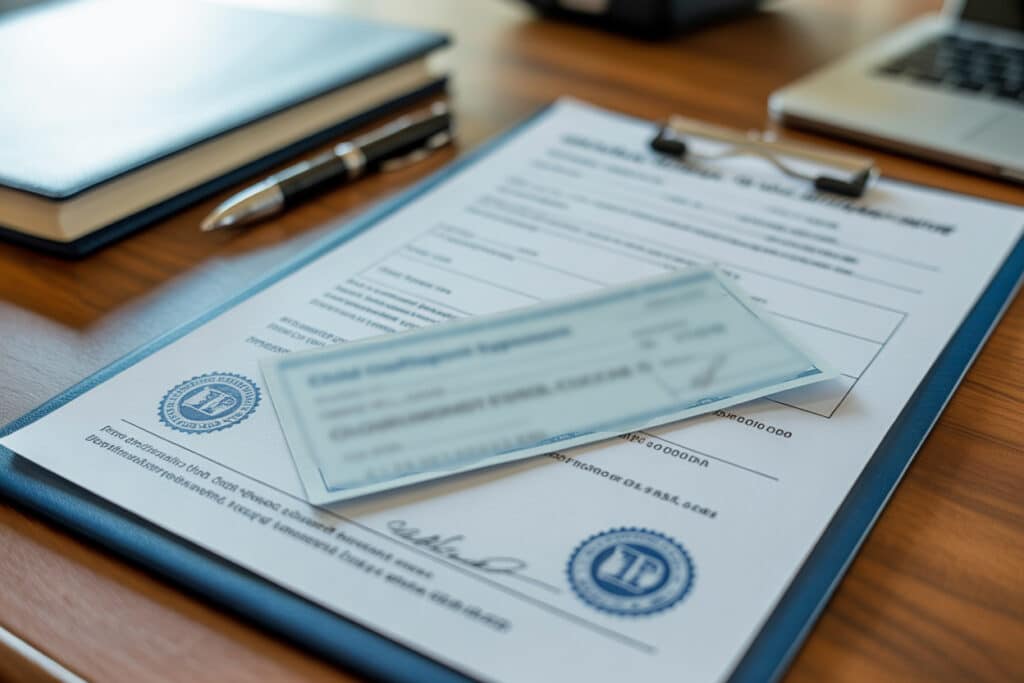
What Happens After DNA Test Results Are Available?
Once the DNA test results are back from the lab, they become a key piece of evidence for the court. The lab usually sends the results directly to the court or your legal representative. If you have a lawyer, they’ll likely be the one to share the information with you. It can take a few weeks to get these results, so patience is important.
How Results Impact Child Support Decisions
The outcome of the DNA test significantly shapes the child support case. If the test confirms the alleged father is indeed the biological father, he will likely be legally obligated to pay child support. The amount is usually determined based on factors like his income, the amount of time he spends with the child, and the number of children he supports. If the test excludes him as the father, the court will typically dismiss any claims for child support against him.
Excluding or Confirming Paternity
DNA tests are incredibly accurate, often showing a probability of paternity at 99.9% or higher when the alleged father is biologically related to the child. Conversely, if the man is not the father, the test will exclude him. This scientific evidence removes guesswork and ambiguity, allowing the court to make a definitive ruling.
The court relies on these results to establish legal parentage, which is the basis for all child support orders. Without this scientific confirmation, disputes over paternity could drag on, causing more stress and financial uncertainty for everyone involved.
Here’s a general breakdown of what the results mean:
Inclusion: The alleged father is biologically the father of the child. This usually leads to child support obligations.
Exclusion: The alleged father is not biologically the father of the child. This typically ends any child support claims against him.
Inconclusive: While rare with modern testing, sometimes results might not be definitive. This could lead to further testing or a different approach by the court.
Addressing Specific Scenarios in DNA Testing

Testing When the Alleged Father is Unavailable
Sometimes, the person who might be the father isn’t around to provide a DNA sample. This can happen if they’ve moved, can’t be located, or have passed away. In these situations, you might still be able to establish paternity using other relatives. Testing a sibling or parent of the alleged father can often provide a high degree of certainty. The lab compares the child’s DNA with the DNA of these close relatives. This indirect method can be just as accurate as direct testing if the correct relatives are tested. It’s important to discuss these options with the testing facility to understand the best approach.
Testing Multiple Potential Fathers
If there’s uncertainty about who the father is, and multiple men could potentially be the biological father, the testing process can include all of them. You would typically collect samples from the child, the mother, and each of the potential fathers. The lab then compares the DNA profiles to determine the probability of paternity for each man. This is a common scenario in child support cases where paternity is disputed.
Testing an Unborn Child
It is possible to test for paternity before a child is born, though it requires specific procedures. Non-invasive prenatal paternity tests are usually done after the first trimester. These tests analyze fetal DNA found in the mother’s blood. Alternatively, more invasive methods like amniocentesis or chorionic villus sampling (CVS) can also be used, but these carry a small risk to the pregnancy and are typically only done for medical reasons. It’s vital to consult with a healthcare provider and a reputable DNA testing service to understand the risks and benefits of prenatal testing.
Costs and Financial Considerations
When you’re looking into legal DNA testing for child support, thinking about the money involved is a big part of the process. It’s not just about the test itself; there are other fees that can add up.
Who Pays for Court-Ordered DNA Tests?
This is a common question, and the answer can vary. If the state is involved and mandates a DNA test, they might cover the initial cost because establishing paternity is seen as important. However, more often, the court will order one or both parents to pay. The judge might decide who pays based on income, what’s alleged in the case, or how each person has acted throughout the legal proceedings. Sometimes, the court might order the parties to split the cost, or you and the other parent might agree on how to handle it yourselves.
Understanding Filing and Service Fees
Beyond the lab fees, you’ll likely encounter other costs. You might have to pay a court filing fee just to submit your request for a DNA test. Then, there’s the cost of officially notifying the other person involved, which is called service. This can also cost around $50, and if you need a private process server to find someone who’s hard to locate, that fee will be higher. These fees differ depending on your local court system.
Comparing Costs: Legal vs. At-Home Tests
It’s important to know that legal DNA tests, the ones used in court, are generally more expensive than at-home DNA kits. While an at-home test might cost around $250, a court-ordered test can run closer to $500. The main difference is that results from an at-home test usually can’t be used as evidence in court. For legal purposes, you need a test performed by an accredited laboratory with strict procedures for sample collection and handling to maintain the chain of custody. This ensures the results are legally defensible. If you’re unsure about the process, you can look into legal services for DNA testing to help you understand the requirements and costs involved in your specific situation.
Legal Implications and Court Admissibility
DNA Testing for Birth Certificate Amendments
In situations where paternity is established or changed through DNA testing, you might also need to amend the child’s birth certificate. This process typically requires a court order based on the DNA test results. It’s a way to officially record the correct legal parentage on a vital document. The specific steps for amending a birth certificate will vary by state, so it’s good to check with your local vital records office or the court clerk.
| Scenario | Court Admissibility Requirement |
|---|---|
| Paternity Establishment | Legal DNA test with chain of custody |
| Child Support Order | Legally admissible DNA test results |
| Birth Certificate Amendment | Court order based on legally admissible DNA test results |
Seeking Legal Assistance for DNA Testing
Sometimes, figuring out how to get a DNA test for child support can feel like a puzzle. You might wonder if you need a lawyer to get this process started, especially if you’ve never dealt with court orders before. While you can often initiate the process yourself, having legal guidance can make things smoother.
Getting a Court-Ordered Test Without a Lawyer
You can usually start the ball rolling on a court-ordered DNA test without hiring a lawyer. The general steps involve filing a petition with the court. This usually means filling out specific forms and paying a fee to get your case officially started. The court will then review your request. If they agree that a DNA test is necessary, they will issue an order for genetic testing. This order will specify which accredited laboratory should conduct the test. It’s important to follow the court’s instructions precisely to ensure the results are valid for your case.
Utilizing Legal Paraprofessionals
If you’re not ready to hire a full-time lawyer but still want some help, consider looking into legal paraprofessionals or legal aid services. These professionals can assist with paperwork and guide you through the court procedures. They can help you understand the forms you need to fill out and ensure you meet all the requirements for requesting a DNA test. Some organizations, like the Free Legal Assistance Group (FLAG), offer assistance to those who qualify FLAG.
When to Consult with Legal Counsel
While you can often manage the initial steps yourself, there are times when consulting with a lawyer is highly recommended. If the other party contests the paternity or if there are complex custody or support arrangements already in place, a lawyer can be invaluable. They can represent your interests in court, help interpret the DNA test results in the context of your case, and ensure that the final child support order is fair and legally sound. A lawyer can also help if you’re unsure about the specific laws in your state regarding DNA testing and child support.
Here’s a general idea of who can request a DNA test:
- Mothers seeking to establish paternity for child support.
- Alleged fathers wanting to confirm or deny biological fatherhood.
- Courts or child support agencies when paternity is in question.
Remember that legal DNA tests require strict adherence to a chain of custody. This means the samples must be collected at an approved facility, and every step of the process must be documented. This ensures the results are admissible in court.
Choosing a Reputable DNA Testing Provider
When you need DNA testing for child support, picking the right lab matters. You want results that are not only accurate but also legally sound. It’s not like picking a brand of cereal; this has real legal weight.
Accreditations and Certifications to Look For
Before you commit, check what credentials the testing facility holds. You’ll want to see accreditations from organizations like the AABB (American Association of Blood Banks). This shows they follow strict quality standards. Think of it as a seal of approval for their processes and reliability. Labs that are AABB accredited have proven they can handle legal testing correctly.
The Odosek Lab Solutions Difference is what sets us apart in DNA Testing
Odosek Lab Solutions is one provider that has been in the DNA testing game for a long time, over three decades, actually. We test more genetic markers, 24 to be exact, compared to the usual 16. This means we can provide a really high level of certainty when determining paternity. For standard cases, their median combined paternity index is over one billion to one. We also follow the legal chain of custody, which is a must for court cases.
Partnering with Trusted Testing Services
When picking a DNA testing company, look for one that’s known for being trustworthy. It’s important to find a place that does good work and has a good name. We can help you find the right DNA test for your needs. Schedule a FREE consultation with our experts today.
Wrapping Up Your Child Support DNA Test
So, you’ve learned about why DNA tests are so important for child support cases and how to actually get one done legally. It might seem like a lot, but remember, these tests bring clarity. They help make sure the right people are held accountable, which is fair for everyone involved, especially the child. If you’re facing a situation where paternity is in question for child support, know that there are clear steps you can take. Getting accurate, legally recognized results is key to moving forward with certainty.
When you need accurate, legally admissible DNA testing, choosing the right laboratory partner is crucial. Odosek Lab Solutions is a mobile DNA testing company that brings professional testing services directly to you. We utilize AABB-accredited laboratories and maintain an A+ rating with the Better Business Bureau, ensuring the highest standards of accuracy and reliability.
With some of the fastest turnaround times in the industry, Odosek Lab Solutions understands that time is often critical in legal DNA testing situations. Their mobile service eliminates the need for multiple trips to testing facilities, making the process more convenient during what can already be a stressful time.
Whether you’re dealing with child support cases, custody disputes, or other legal matters requiring DNA evidence, having a trusted testing partner can make all the difference in achieving a successful outcome.
Frequently Asked Questions
Why is a DNA test important for child support cases?
A DNA test is super important because it clearly shows who the biological father is. This helps make sure the right person is responsible for child support, which is money to help raise the child. It prevents confusion and arguments, making things fairer for everyone involved, especially the child.
Who can ask for a DNA test for child support?
Usually, either the mother or the alleged father can ask the court for a DNA test. Sometimes, government agencies that handle child support cases might also request one if there’s any doubt about who the father is.
How do you legally request a DNA test for child support?
To get a legal DNA test, you typically need to ask the court. You’ll usually file a petition or motion with the court. A judge will then decide if a test is needed and issue an official order. It’s important to follow the court’s instructions carefully.
What happens if the alleged father doesn't want to take the test?
If someone refuses to take a court-ordered DNA test, the court can often make a decision based on the evidence they have. Sometimes, the court might assume paternity if the test is refused, which could mean they are ordered to pay child support anyway.
Can a DNA test be done on an unborn baby?
While there are ways to test DNA before a baby is born, courts usually require DNA tests to be done after the child is born to be legally valid for child support cases. The court will typically order the test to be done once the baby has arrived.
Who pays for a court-ordered DNA test?
The cost of a court-ordered DNA test can vary. Sometimes, the person asking for the test pays upfront, but the court can decide who pays. This could be one parent, both parents splitting the cost, or even the state if they initiated the case.
What's the difference between a legal DNA test and an at-home test?
A legal DNA test follows strict rules for collecting samples and keeping a record of who handled them (called a chain of custody). This makes the results usable in court. An at-home test is just for personal information and cannot be used as evidence in legal matters like child support.
How accurate are legal DNA tests?
Legal DNA tests are extremely accurate, often over 99.9%. They compare specific parts of your DNA to the child’s DNA. This high level of accuracy helps courts make reliable decisions about paternity and child support.


